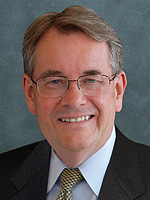
By MARGIE MENZEL
THE NEWS SERVICE OF FLORIDA
The Florida House of Representatives on Wednesday advanced a controversial bill that would allow private adoption agencies to refuse to place children with same-sex couples. Dubbed the “conscience protection” bill, the House measure (HB 7111) by Rep. Jason Brodeur, R-Sanford, is poised for approval as soon as Thursday.
It would allow private adoption agencies whose “written religious or moral convictions” do not permit children in their care to be adopted by gays or lesbians to refuse to make such placements. The agencies would not face the possibility of losing their licenses or state funding.
But across the Capitol, the Senate refused to keep on the books a decades-old state law that banned gay adoptions. The issue arose in debate about a bill (HB 7013) that would provide adoption subsidies to state workers.
The House, in passing the adoption-subsidies bill last month, moved to repeal the prohibition on gay adoptions — a law that was struck down by an appeals court five years ago and has not been in effect. But Sen. Kelli Stargel, R-Lakeland, proposed an amendment Wednesday that would have kept the prohibition in law. Like with the “conscience protection” issue, she pointed to concerns about the effect on faith-based adoption agencies if the law is repealed.
“I strongly believe that our faith-based organizations provide a lot of our adoptions, and I think that they should have the religious freedom not to have to put a child in the home of a family that they may not believe holds their religious guidelines,” Stargel said earlier Wednesday.
But Sen. Don Gaetz, a Niceville Republican and the sponsor of the adoption-subsidies bill in the Senate, led the opposition to Stargel’s amendment, which failed in a voice vote. He warned that Stargel’s amendment could jeopardize the entire adoption-subsidies bill.
“It’s not only an unfriendly amendment, it is a killer amendment,” Gaetz said.
The bill, in part, would offer $10,000 payments to state employees who adopt special-needs children from the foster-care system and $5,000 payments to state employees who adopt other foster children.
Gaetz said that of the 852 children awaiting adoption in the state foster-care system, the overwhelming majority are special-needs children. “All are very hard to place,” he said. “And that’s what this bill is for.”
The House passed the adoption-subsidies bill March 11 but set off a firestorm by including the repeal of the law that banned same-sex couples from adopting in the past.
Florida banned gay adoption until 2010, when an appeals court ruled that the ban was unconstitutional. Since then, the state hasn’t challenged such adoptions, but the ban has remained in statute.
“That carries the force of law,” Gaetz said of the court ruling. “Since that decision came out, no advocacy group on either side of the law has suggested that it was wrong or should be challenged. …That ship has sailed.”
He also contended that the Department of Children and Families “under oath has said they placed children with same-sex couples and there are no negative consequences of that.”
But Stargel said she could not “in good conscience” support gay adoption as part of state law.
“I don’t believe it’s a done deal,” she said. “It’s possible the Supreme Court would render a different decision.”
In the House, a three-hour debate over Brodeur’s “conscience-protection” bill showed the strength of the backlash against last month’s vote.
House Democrats tried a series of amendments that would have sought to prevent private adoption agencies from discriminating based on race, religion, national origin, gender identity and military and marital status — but they were all outvoted, largely along party lines.
In a number of those instances, Brodeur proposed the same substitute amendment, which would insert language in the bill stating, “An act by a private child-placing agency under this subsection does not constitute discrimination.” Every one of the substitute amendments passed.
“This is a shield, not a sword,” Brodeur said of his bill. “A shield to protect our religious liberties.”
He pointed to Catholic Charities of Boston and San Francisco, which stopped providing adoption services in 2006 rather than comply with state anti-discrimination laws.
“We’ve seen in other states those agencies absolutely shut down,” Brodeur said.
The Florida Democratic Party and the American Civil Liberties Union of Florida oppose the conscience-protection measure, while the Florida Family Policy Council and the Liberty Counsel support it.
“When kids are placed in the care of the state because of abuse or neglect, they must have their foster or adoptive family chosen based on their needs, not the religious or moral beliefs of agencies the state hires to care for them,” the ACLU’s Michelle Richardson said in a statement.
Asked if he’d sign or veto the measure should it reach his desk, Gov. Rick Scott did not answer directly.
“We have a great state,” he said. “We’re one of the best melting pots in the world.” Scott noted that 250,000 languages are spoken in Florida, more than 100 million tourists are expected this year and 250,000 people moved here last year. “This is a state that people want to move to — we’re doing the right thing,” he said.



